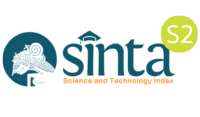KONVERSI DAN DISKRIMINASI TERHADAP MUALAF DI DAERAH ISTIMEWA YOGYAKARTA (DIY)
DOI:
https://doi.org/10.31330/penamas.v32i2.320Keywords:
Keywords: religious conversion, mualaf, conversion, DIYAbstract
Abstract
Freedom of religion and worship agreed in the constitution. The act of remembering and intolerance is not infrequently obtained, both from the nuclear family, the friendship environment, the workplace, and their social environment. This paper discusses to be analyzed and discussed about the discussion of the comparison (conversion) of mualaf both compile before reaching conversion of religion. And the forms or patterns of interaction carried out by the structure in the community of converts. Questions about intrinsic type research. Determination of participant purposive sampling. Data collected by in-depth interviews, observation, and documentation. Mailing lists and Huberman: (1) data reduction, (2) data presentation, and (3) drawing conclusions or verification. Based on the results of the study (1) the background of being an individual convert attended by informants namely spiritual emptiness, questioning the existence of God and distrust in the religion that was voiced, (2) responses from families that gave rise to conflicts related to coverage, truly, safely and smoothly the purpose those who are asked to return to their original religion, and to be ostracized, (3) there are those who argue from the social environment or the community, then turn into friendly.
References
Amudi, Mohammad Al. 2012. “Konversi Agama Menjadi Mualaf Pada Orang Yang Menikahâ€. Skripsi. Surakarta: Universitas Muhammadiyah Surakarta.
Apriadi, Danang. 2012. “Dinamika Psikologi Pelaku Konversi Agama (Studi Kasus Tentang Mualaf di Yayasan Ukhuwah Mualaf Yogyakarta)â€. Skrpsi. Yogyakarta: FIP UNY.
Darajad, Zakiah. 1970. Ilmu Jiwa Agama. Jakarta: Bulan Bintang.
Dwisaptani, Rani dan Jenny Lukito Setyawan. 2008. “Konversi Agama dalam Kehidupan Pernikahanâ€. Jurnal Humaniora 30, no. 3: 327-339.
Hakiki, Titian dan Rudi Cahyono. 2015. “Komitmen Beragama pada Muallaf (Studi Kasus pada Muallaf Usia Dewasa)â€. Jurnal Psikologi Klinis dan Kesehatan Mental 4, no. 1: 20-28.
Jalaluddin. 1998. Psikologi Agama. Jakarta: Raja Grafindo Persada.
Jensen, Tina Gudrun. 2006. “Religious Authority and Autonomy Intertwined: The Case of Converts to Islam in Denmarkâ€. The Muslim World 96, no. 4: 537-542.
McDougall, Debra. 2009. “Becoming Sinless: Converting to Islam in the Christian Solomon Islandsâ€. American Anthropologist 111, 4: 643 - 660.
Miles, Mattew B, dan Amichael Huberman. 2007. Analisis Data Kualitatif Buku Sumber tentang Metode-metode Baru, Terjemahan Tjetjep Rohendi Rohidi. Jakarta: Universitas Indonesia.
Mudhori, Hafidz. 2017. “Treatmen dan Kondisi Psikologis Mualafâ€. Jurnal Edukasi Jurnal Bimbingan Konseling 3, no. 1: 16-39.
Noorkamilah. 2014. “Pembinaan Muallaf; Belajar dari Yayasan Ukhuwah Muallaf (YAUMU) Yogyakartaâ€. Jurnal PMI 11, no. 1: 1-20.
Noviza, Neni. 2013. “Bimbingan Konseling Holistik Untuk Membantu Penyesuain Diri Mualaf Tionghoa Mesjid Muhammad Chengho Palembangâ€.Wardah 14, no. 2: 199-215.
Nurzuyinah, Ulfah. 2016. “Metode Pembinaan dan Pembentukan Mental Keagamaan Para Mualafâ€. Skripsi. Purworejo: STAINU.
O‘Dea, Thomas F. 1987. Sosiologi Agama. Yogyakarta: Rajawali.
Rumagit, Stev Koresy. 2013. “Kekerasan dan Diskriminasi Antar Umat Beragama di Indonesiaâ€. Jurnal Lex Admistratum 1, no.2: 56-64.
Steenbrink, Karel A. 1998. “Muslim-Christian Relations in the Pancasila State of Indonesiaâ€. The Muslim World 88, no. 3-4: 320-352.
Sumardjoko, Bambang. 2004. Pengantar Penelitian Kualitatif. Surakarta: Program Pascasarjana UMS.
Theodorson, George A, and Achilles G. Theodorson. 1979. A Modern Dictionary of Sociology. New York, Hagerstown, San Francisco, London: Barnes & Noble Books.
Turner, Bryan S. 2007. “Islam, Religious Revival and the Sovereign Stateâ€, The Muslim World 97, no. 3: 405-418.








